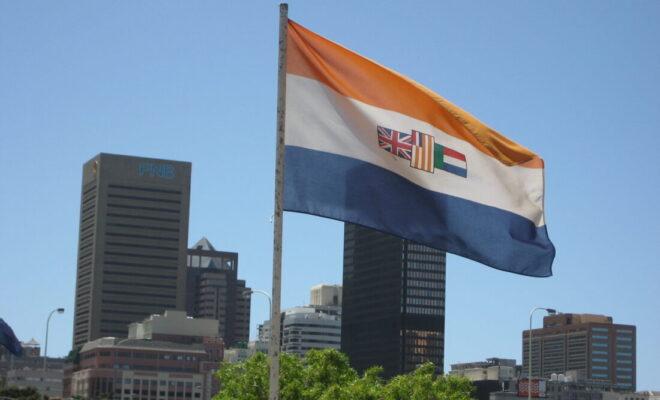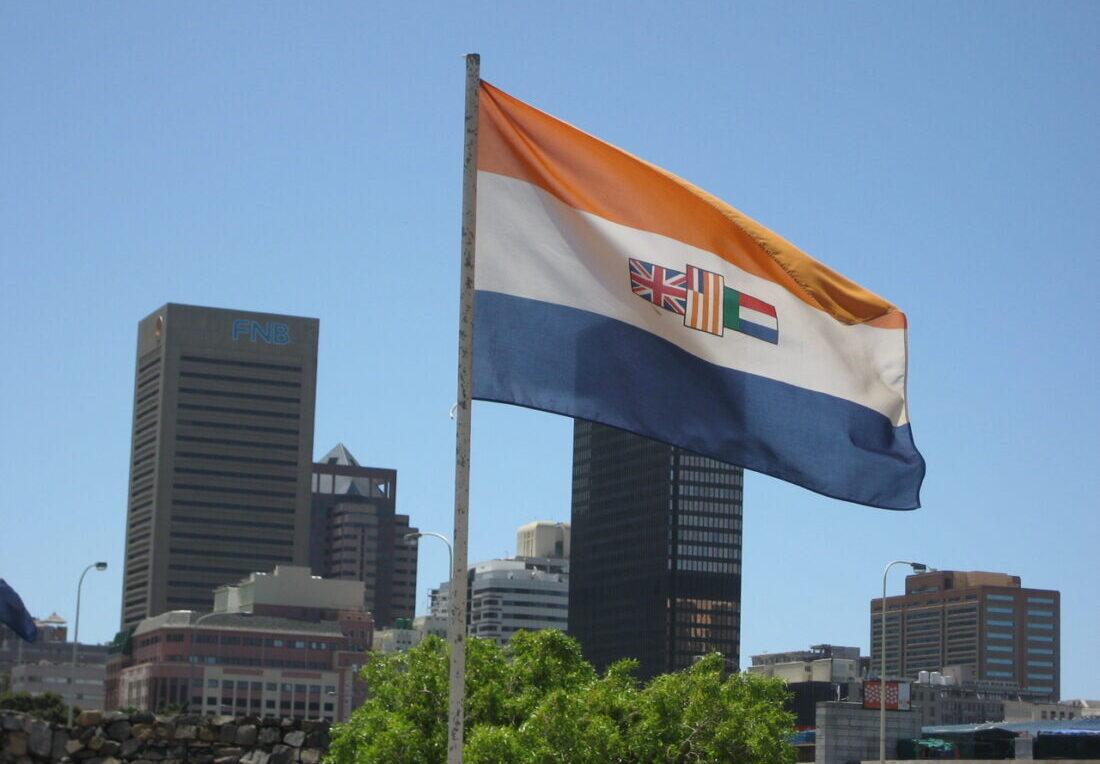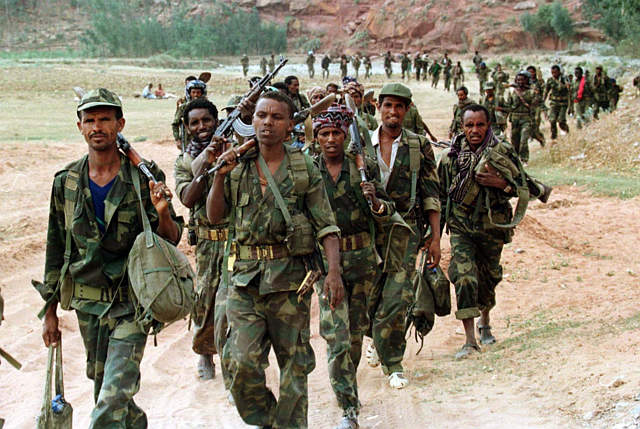Insiders Insight: Flying apartheid flag is hate speech rules South Africa


South Africa’s now partially banned apartheid era flag. Credit: Wikicommons.
African Arguments is and always will be freely-accessible to everyone.
But we also have a separate spin-off product called the Africa Insiders Newsletter. It consists of weekly emails with additional snappy insights on topics such as elections, conflict, health and more. It’s for those who want a bit extra and comes with a small subscription fee:
- Regular: $10/month or $100/year
- Patron: $15/month or $150/year. The extra 50% goes straight to funding African Arguments.
- Student/limited income: $2/month or $20/year.
The profits from the newsletter go into funding African Arguments’ free content.
Click here to SUBSCRIBE.
Table of contents:
- Follow up
- In Uganda, Huawei’s watching you
- What we are talking about
- South Africa lowers apartheid-era flag
- Continental health corner
- Polio-free Africa
- Tweet of the week
- One unidentified leader
- What else
- If you’ve got time, read these!
Click here to SUBSCRIBE.
Free segment: What everyone is talking about
South Africa lowers apartheid-era flag
The essentials: South Africa’s Equality Court has banned unjustified flying of the country’s apartheid-era flag unless for academic, art and journalistic purposes. Offenders will not face a jail term, the court said on Wednesday, but will be subject to fines and hours of community service. Judge Phineas Mojapelo who ruled on the case in Johannesburg said exhibiting the flag constitutes hate speech – an offence under the Equality Act – and “promotes and propagates hatred against black people”.
The background: The landmark ruling was the result of Nelson Mandela’s Foundation Trust petitioning the court back in 2017 after white farmers displayed the old flag at ‘Black Monday’ marches: Demonstrations against the killing of white farmers.
Known in Afrikaans as the ‘Orange, Blanje, Blou’ for its orange, blue and white stripes, the old flag was adopted by an all-white parliament 20 years before apartheid rule. As it flew, black South Africans were violently subjugated by a white minority in events that are now widely acknowledged as crimes against humanity. Although the flag was replaced by the present six-colour flag at the end of apartheid rule, it remains a symbol of hate and division in the country.
Afrikaner groups that opposed to the ruling, including members of AfriForum, the lobby group that organised the ‘Black Monday’ protests, argued that the flag cannot technically constitute hate speech because it’s not a word. They submitted that the flag as a national heritage should not be banned. But the majority see the flag’s exhibition by Afrikaner nationalist groups as a nod to the oppression of black people. CEO of the Nelson Mandela Trust, Sello Hatang, recounted childhood memories during apartheid in his submission to the court. He explained that for him and many others, “the old flag represents the inhumane system of racial segregation and subjugation that governed SA before 27 April 1994”.
The good: It’s a symbolic victory for black South Africans who, decades after apartheid, remain economically disadvantaged. As the Nelson Mandela Foundation tweeted after the court’s decision, this is a win for South Africa’s democracy and a win for all South Africans.
The bad: Although Judge Mojapelo ruled that ‘words’ may mean non-verbal expressions, those opposed to the ruling will find other ways to exploit loopholes in the ban. Just moments after the ruling, AfriForum’s deputy president Ernst Roets tweeted a photo of the flag and captioned it “Am I committing hate speech?” Roets, who now faces contempt of court proceedings, defended the tweet on grounds of him being a researcher.
The future: Judge Mojapelo, in his judgement, hopes that groups on either side of the argument can work together for the country’s unity. Considering Roets’ actions after the ruling, that may not be likely.
- South African court partially bans display of ‘apartheid flag’ (Al Jazeera)
- South Africa Bans ‘Gratuitously’ Displaying Apartheid-Era Flag, Will Be Considered Punishable Hate Speech (The Root)
- AfriForum, Ernst Roets facing contempt of court proceeding over apartheid flag tweet (Mail and Guardian)
- South African court bars display of apartheid-era flag as racist hate speech (The Telegraph)
- Court Limits Display Of South Africa’s Old Apartheid Flag, Citing Hateful Legacy (NPR)
- #ApartheidFlag Ruling A Non-Racialism Milestone (The Daily Vox)
- South African court restricts display of apartheid-era flag, saying it amounts to hate speech, racial discrimination (The Washington Post)
- Old SA flag symbolises ‘black oppression, rejection of reconciliation’ (Herald Live)
- The flag of hate is lowered (The Daily Maverick)
- Old flag debate is a symptom of a deeper malaise (Mail and Guardian)
Discuss with @Shollytupe on Twitter
Click here to SUBSCRIBE.
The Africa Insiders’ Newsletter is a collaboration between AfricanArguments.org and @PeterDoerrie, with contributions from @_andrew_green, @shollytupe, and assistance from Stella Nantongo. Part of the subscription revenue is funding in-depth and freely accessible reporting and analysis on African Arguments.





